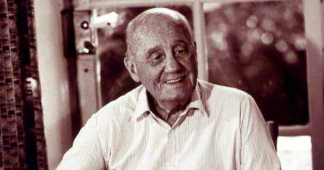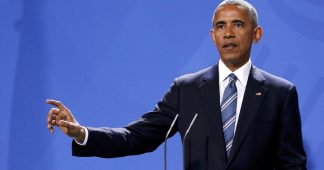I think that Ian Kershaw’s biography of Hitler is the best so far to appear, but I am far from being as enthusiastic about it as Alex Callinicos (November SR). Kershaw fails to make a consistent class analysis of fascism, and therefore fails to understand its dynamics.
I consider that Trotsky’s extensive writings on fascism have withstood the rigours of time. Yet Kershaw does not appear to be acquainted with them, let alone make an evaluation of them. The same goes for Daniel Guerin’s classic work, Fascism and Big Business, not to mention Alfred Sohn-Rethel’s Economy and the Class Structure of German Fascism. A German Marxist, Sohn-Rethel was working in the private inner precincts of the leading organisation of German capital when it reached its amicable understanding with the Führer. His first hand experiences are of great value.
That big business provided the backbone for Nazism is, according to Alex Callinicos, the orthodox view of the Third International under Stalin. However, I would argue that it was the revolutionary left, those opposed to Stalinism, who advanced this view consistently. By contrast, the rulers in the Kremlin had an ambivalent attitude, a love-hate relationship with Hitler. At times Soviet national interests would dictate cooperation with Germany. The German Communist Party simply followed the line dictated in Moscow.
This is thoroughly explained in an excellent work by Peter Petrov. He, of course, had been a hero of the 1905 Russian Revolution, after which he fled to Scotland where he became the comrade in arms of John Maclean in the revolt on the Clyde. After the October Revolution he returned to Moscow and joined the Russian government. However, the rise of Stalin and the policies Stalin pursued in the 1920s sent him on his travels again. He witnessed the demise of the Weimar Republic and the rise of the Nazis.
Forced to flee once more, Petrov came to England. The Hogarth Press, run by Leonard and Virginia Woolf, published his The Secrets of Hitler’s Victory. Towards the end of this book he explains why it was so disastrous for the German CP to meekly obey their Moscow masters’ pro-Nazi line. They were not following socialist principles but those of a particularly ruthless ruling class:
‘As a basis of despotism, state capitalism becomes unbearable. Because an established state capitalism – as we see today in Russia – makes the citizen in all spheres of his life a dependent on the state: the state is his employer, his landlord, his tradesman, and by no change of employment or lodging can he escape from it. The state decides the admission of his children to higher schools, of members of his family to hospitals. A conflict with the state as employer might easily lead to reprisals by the state as tradesman, landlord or schoolmaster. A corrupt, petty administration, which is a feature of every dictatorship, could not but drive citizens to despair.’
The Secrets of Hitler’s Victory remained shunned, a work neglected by Ian Kershaw as by other historians. Published in 1934, it predates Tony Cliff’s Stalinist Russia by 14 years.
I have just been reading the excellent book published by Redwords, Victor Serge’s Witness to the German Revolution. The editor, Ian Birchall, writes,
‘The claim that Ford was financing Hitler first appeared in the New York Times (20 December 1922), which contained an account of a visit to Hitler’s headquarters: “The wall beside his desk in Hitler’s private office is decorated with a large picture of Henry Ford. In the antechamber there is a large table covered with books … published by Henry Ford. If you ask one of Hitler’s underlings for the reason of Ford’s popularity in these circles he will smile knowingly and say nothing.” At Hitler’s trial in 1924 evidence was given that “the Hitler movement was partly financed by an American anti-Semitic chief, who is Henry Ford”. In August 1938 Henry Ford received the Grand Cross of the German Eagle, a Nazi decoration.’
Would Ian Kershaw – or for that matter Alex Callinicos – like to suggest that there were no German industrialists, the equivalent of Henry Ford, who did not have the same enthusiasm for the Führer?
From Socialist Review, No. 247, December 2000.











